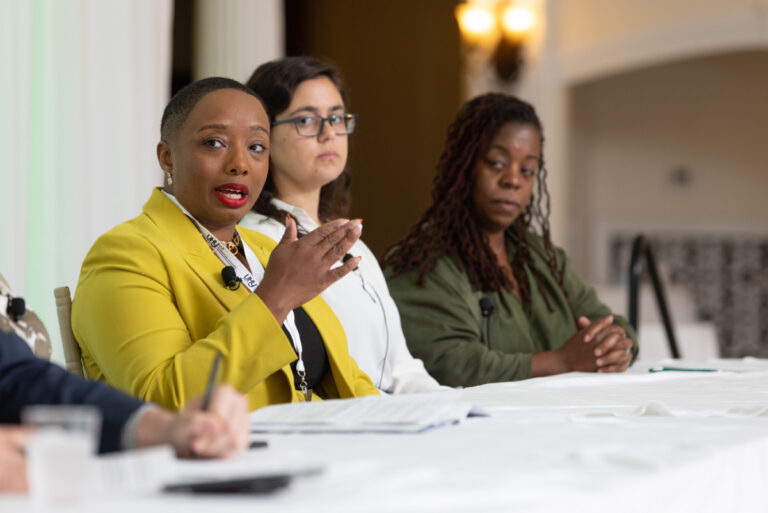As one of the first in the state to get a provisional cannabis license, Tiana Hercules is looking for a large facility in Greater Hartford to open her prospective cultivation facility.
Hercules, founder and CEO of social equity micro-cultivator Connecticut Cultivation Solutions, said she’s looking for a 60,000-square-foot facility in Hartford or a surrounding municipality to open her marijuana grow operation. Earlier this month she was issued a 14-month provisional license, which allows her to proceed with efforts to get her business off the ground, including finding an industrial/manufacturing building.
Hercules said she’s been looking at a few different properties in Hartford County and hopes to close on a location soon.
“Once we have a site located, we’ll be looking at local zoning to get those approvals and then begin to build out and retrofit the building,” Hercules said during the Hartford Business Journal’s Sept. 14 cannabis expo. “We will hopefully be one of the first to market.”
Hercules is pursuing a disproportionately impacted area cultivator license, which allows for a large-scale operation of more than 15,000 square feet of grow space. That’s different from a micro-cultivator license that allows for grow space between 2,000 square feet and 10,000 square feet.
Hercules said there is a good amount of available industrial real estate inventory in the Hartford area, but remediation costs to outfit an existing building that has sat vacant can be in the tens of thousands of dollars. Finding a balance between a viable location and the construction costs needed to get it ready to grow cannabis is key, she said.
“In Hartford specifically, there just isn’t a lot of vacant land where nothing exists currently on it, so you’d be knocking something down,” Hercules said.
Head start
To open her grow facility, Hercules has established an equity joint venture with Florida-based multistate cannabis operator Ayr Wellness, which will be new to the Connecticut market. Under state law, Hercules must own and control at least 50% of the company.
An equity joint venture also allows her to potentially open additional businesses, including a dispensary, which she originally hoped to pursue.
While Hercules is one of 16 potential new growers that has been granted social equity status, she and others are unlikely to be up and running before the end of the year, based on all the work that must be done to retrofit a facility and start the planting process.
When asked whether medical growers and their converted dispensaries will be the first, and potentially only, adult-use businesses to open by the end of the year, Social Equity Council Chair Andrea Comer said the state’s recreational cannabis law lends itself to that reality.
“Given the fact that the medical producers already have a facility, already have operations and have already started planting seeds for growth and production, they’re going to have a head start,” Comer said.
No medical marijuana producers have officially received approval to convert their facilities to hybrid operations, but state officials are still “hopeful” there will be recreational cannabis sales before the end of 2022, Comer said.


